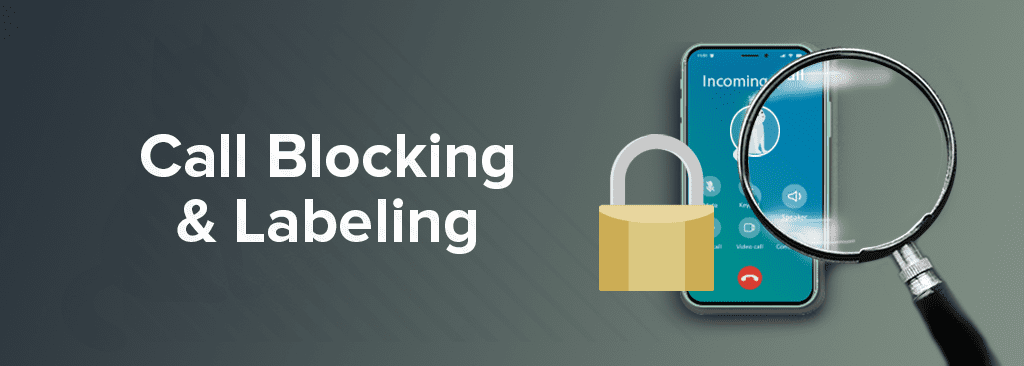Call Blocking and Labeling: A Breakdown of What Call Centers Need to Know
Your contact center’s objective is to have its calls successfully reach your right party contact. This is difficult to accomplish when calls are being blocked or mislabeled.
With the constant changes concerning call blocking, call center executives and managers always have TCPA compliance on their radar. The TRACED Act (Telephone Robocall Abuse Criminal Enforcement and Deterrence) signed into law by President Trump has increased fines and charges up to 10,000 dollars per robocall.
Before the signing of the TRACED Act, call center managers put all of their attention solely on the TCPA guidelines that were set when the TCPA Act was signed in 1991. However, now fear for call centers isn’t being caught for fraud — but being mislabeled by a caller ID.
These laws have affected the call center industry in many more ways than one. Americans are receiving fewer robocalls every year. The Do Not Call Registry reports from the FTC shows that robocall complaints are down 68% from the previous year.
The heightened attention on spam and unwanted calls has driven consumers to negative assumptions towards call centers. To maintain good standing, call center managers must always be on the lookout for cloud-based solutions that can keep customers happy and their organizations clear of any penalties.
TCN is here to break down what call centers need to know regarding call blocking and labeling.
What is STIR/SHAKEN Call Blocking?
STIR/SHAKEN digitally confirms phone calls that are being passed through different types of web networks. This allows cellular carriers to verify phone numbers before the consumer receives the call. Today, all cellular services are required to implement the STIR/SHAKEN onto their carrier networks.
Call quality assurance can aid in keeping contact centers compliant and is monitored within organization operations. Managers collaborate with quality assurance (QA) specialists to look over call lists and scrub lists. QA specialists also observe agent performance to ensure top-tier compliance across the entire organization.
TCN has already implemented STIR/SHAKEN protocols with carriers. Clients have the opportunity to take advantage of this service and eliminate some of their compliance stress. TCN offers Full Attestation or Partial Attestation for clients who wish to port their calls for quality assurance.
Verifying Your Party to Gain Customer Trust
It’s essential to verify your phone numbers to ensure that legitimacy is being proven to your customers. Building that trust can further protect your organization from the possibility of being misidentified when contacting customers.
Certifying your Trusted Entity status across the ecosystem establishes trust in your brand and helps ensure that your calls get through to customers. Phone number registration protects your organization from being mislabeled as “Scam” or “Fraud.” This provides end-to-end solutions for your organization to prove your legal valid intent.
The Importance of Compliance Tools — TCN’s Compliance Suite
The changes regarding call blocking and the recent signing of the TRACED Act can make call center managers anxious for the future their organization is going to face. That’s why TCN has created tools made with call center compliance in mind.
TCN’s Compliance Tools include the following features:
- NLC (Natural Language Compliance) – Helps call centers create customizable rules that work with federal and state regulations.
- MAC (Manually Approved Calling) – Allows agents to pre-approve calls for other agents to maintain performance.
- Call Recording – Provides data that can be quickly searched and analyzed for training or compliance purposes.
- Cell Phone Scrub – A standard feature for outbound calls that can identify and cancel calls to cell phones and ported numbers.
To dive more into strategies for your call center to protect against and understand the effects of call blocking, download TCN’s Guide to Call Blocking and Labeling today.
